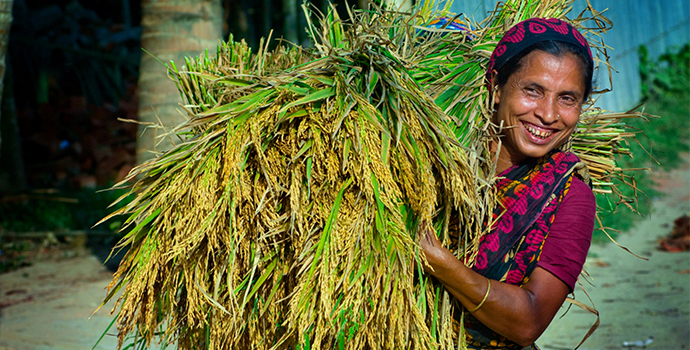- About Us
-
Who we are
-
- Publications
-
- ADPC Academy
-
MediaADPC'S NEWS
World Bank-supported Project on Climate Adaptation and Resilience in South Asia World Bank-supported Project on Climate Adaptation and Resilience in South Asia
15 May 2020
Bangkok, Thailand

Climate change could push 62 million people in South Asia into extreme poverty by 2030. Those who are living on the edge and above the poverty line are also likely to be affected by extreme weather, floods, heatwaves, and other climate-induced hazards. A World Bank study has concluded that, without climate action, the locations of 800 million (or 44 percent) people in South Asia would become moderate or severe climate hotspots by 2050.
The COVID-19 pandemic has uncovered many layers of vulnerability including the level of preparedness for pandemics. Climate-induced disasters in combination with pandemics like COVID-19 are threatening lives and livelihoods in South Asia which warrants a deeper and wider focus on enhancing the resilience of countries and people to climate change.
The COVID-19 pandemic has uncovered many layers of vulnerability including the level of preparedness for pandemics. Climate-induced disasters in combination with pandemics like COVID-19 are threatening lives and livelihoods in South Asia which warrants a deeper and wider focus on enhancing the resilience of countries and people to climate change.
The World Bank has approved the project on Climate Adaptation and Resilience (CARE) in South Asia, a $39.5 million initiative that will be implemented jointly by the Asian Disaster Preparedness Center (ADPC) and the Regional Integrated Multi-Hazard Early Warning System for Africa and Asia (RIMES).
The CARE project will help develop a public platform to inform climate planning and investments, and fund innovative and disruptive technology to support resilience in South Asia.
National level interventions in key sectors like agriculture, transport, water, planning, and finance will be piloted in Bangladesh, Nepal, and Pakistan to build resilience to climate change impacts.
The project will help South Asia build resilience to climate change risks by sharing regional data and knowledge, developing regional standards and guidelines for infrastructure, and promoting climate-resilient policies and investments.
The project is expected to start in the second half of 2020 and run for 5 years.
Read the full press release issued by the World Bank here.
Read a blog on South Asia cooperates to fight climate threats and disasters for more details on CARE.
Latest NewsRelated Trainings
-